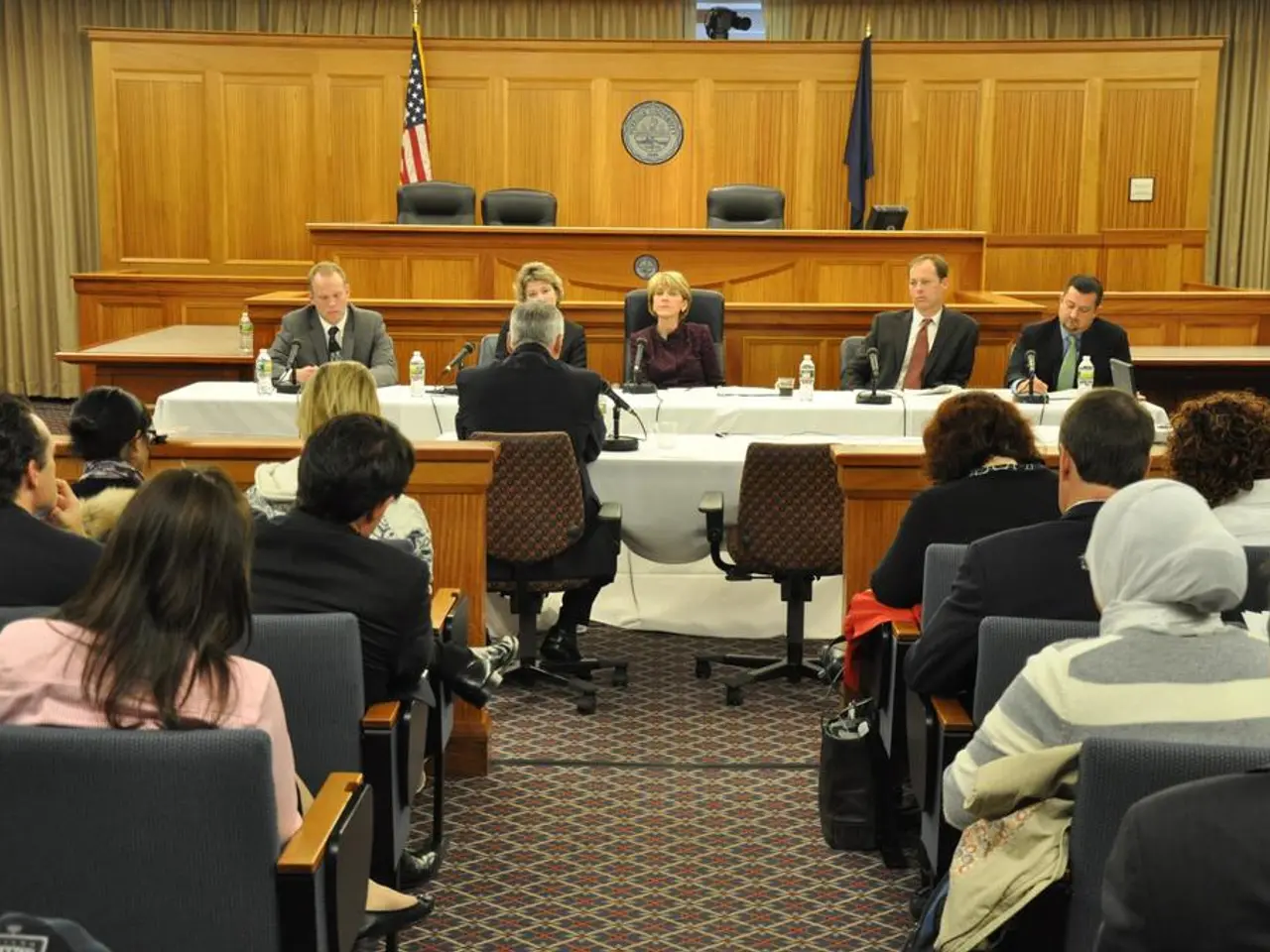Senate passed Trump's key bill, the "One Big Beautiful Bill," with Vice President Vance's decisive tie-breaking vote
The Senate's latest tax and spending bill, dubbed the "One Big Beautiful Bill," has created a complex mix of winners and losers across various sectors, industries, and entities. The bill, which President Trump has demanded to be on his desk by July 4, has been passed by the US Senate in a razor-thin vote.
### Gaining Ground
One of the key beneficiaries of the bill is border security and immigration enforcement. The bill allocates more than $46.5 billion for border wall construction, $45 billion to expand immigrant detention capacity, and about $30 billion for hiring and training U.S. Immigration and Customs Enforcement staff. This is a significant win for contractors in border infrastructure and homeland security sectors.
Rural hospitals and healthcare providers are also set to gain from the bill. A $50 billion rural hospital stabilization fund aims to support these providers by lowering provider taxes, providing much-needed relief to rural hospitals struggling under Medicaid restrictions.
The bill also includes $12.5 billion for overhauling the U.S. air traffic control system, a move that industry leaders, like Airlines for America, have praised. This funding supports modernization efforts that will benefit airlines, technology providers, and airport systems.
Credit unions are another group that stands to benefit from the bill. The bill preserves the not-for-profit tax status of credit unions, protecting 142 million members from new taxes and enabling credit unions to continue offering competitive rates and personalized services.
The bill also promotes private investment in infrastructure and next-generation networks through targeted tax incentives. This move is expected to accelerate job creation and growth in construction, technology, and telecommunications sectors.
Lastly, state and local governments in high-tax states are set to receive tax relief. The state and local tax deduction cap is temporarily increased from $10,000 to $40,000 for five years, providing tax relief to residents in these states and potentially benefiting local economies and taxpayers.
### Losing Out
On the other side of the spectrum, the bill is projected to add roughly $1 trillion more to the deficit than previous House versions, raising concerns among fiscal conservatives and deficit hawks about increased national debt and long-term economic impact.
Immigrants and asylum seekers may also face additional financial burdens with the implementation of a minimum $100 asylum application fee. This could potentially restrict access for some.
The bill has also drawn fire from fiscal hawks within the Republican Party, with the House Freedom Caucus stating that the bill is not what they agreed to in terms of fiscal responsibility. The Senate's proposed cuts to Medicaid have also raised concerns among House Republicans.
The "One Big Beautiful Bill" faces infighting across the aisle, with deep divisions within Trump's own party and strong opposition from Democrats. Critics have slammed the bill for being anti-welfare, with Democrats accusing Republicans of prioritizing tax breaks over working-class support.
Tech billionaire Elon Musk, who once championed Trump's return to the White House and briefly served as his cost-cutting czar, has turned sharply against the bill, particularly its steep cuts to subsidies for renewable energy and electric vehicles.
The passage of the bill in the House of Representatives is uncertain due to the infighting and deep divisions within Trump's own party. The next few days in Congress could prove decisive for the "One Big Beautiful Bill."
- In contrast to certain sectors, finance experts predict that the defi sector might experience losses due to the potential increase in national debt, estimated to be over $1 trillion more than previous House versions, raising concerns among deficit hawks.
- The war-and-conflicts and crime-and-justice sectors may see an impact as the bill's projected tax relief for high-tax states could possibly divert resources away from public safety and military funding, potentially affecting these sectors.
- The policy-and-legislation and politics realms could witness intense debates and possible policy adjustments as the bill faces strong opposition from Democrats, infighting within Trump's own party, and critics accusing Republicans of prioritizing tax breaks over working-class support, which could lead to changes in the bill or legislative strategies.
- General news outlets may cover stories about the legislative proceedings and political debates surrounding the bill's passage in the House of Representatives, as the next few days in Congress could prove decisive for the "One Big Beautiful Bill."







